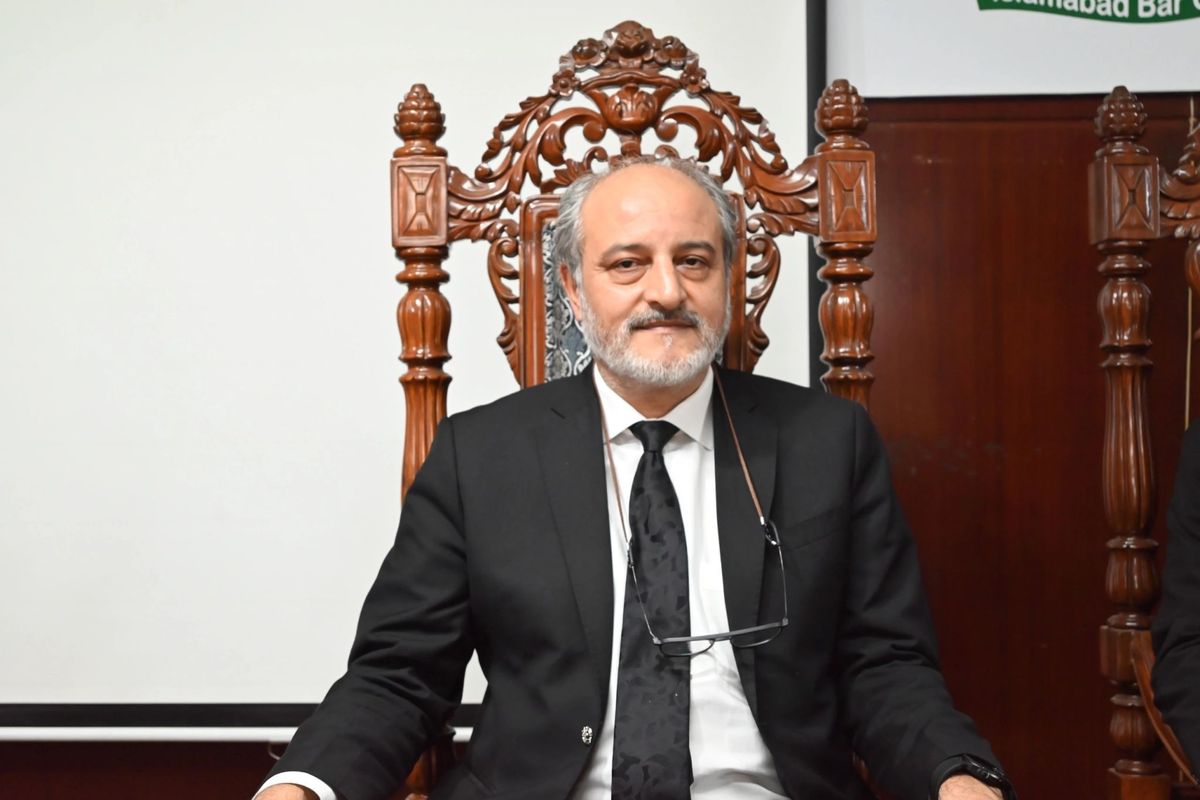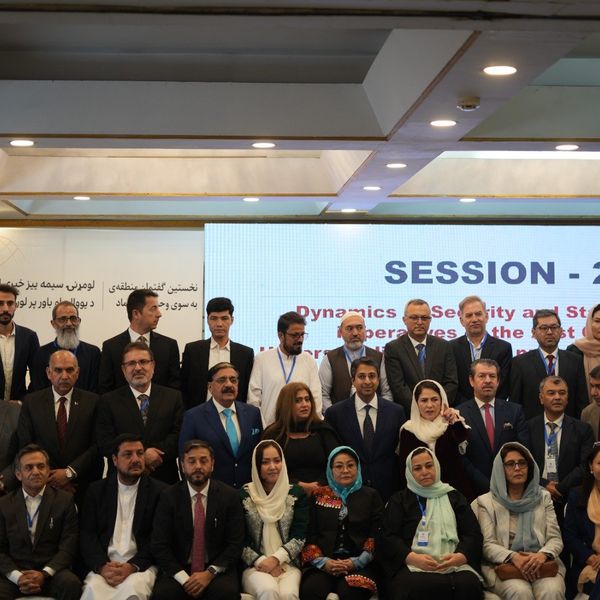Pakistani judge warns judges risk becoming ‘robots’ amid growing interference
Islamabad High Court judge Justice Sardar Ejaz Ishaq compares judicial interference to artificial intelligence in sharp dissent

Aamir Abbasi
Editor, Islamabad
Aamir; a journalist with 15 years of experience, working in Newspaper, TV and Digital Media. Worked in Field, covered Big Legal Constitutional and Political Events in Pakistan since 2009 with Pakistan’s Top Media Organizations. Graduate of Quaid I Azam University Islamabad.

Justice Sardar Ejaz Ishaq Khan speaking at the Islamabad Bar Council, May 14, 2024.
A Pakistani judge issued a scathing dissent on Monday against what he described as growing interference in the country’s judiciary, drawing a striking comparison between external control over judges and the programming of artificial intelligence.
Commenting on the full court meeting held in September to mark the start of the new judicial year, Justice Sardar Ejaz Ishaq of the Islamabad High Court (IHC) warned that the judiciary risks becoming a “robotic system” dictated by unseen hands.
“In the new era, robots will be installed on the seat of justice — machines that will merely act at the will of their programmers, with their decisions entirely dictated by the code fed into them,” he said in his written statement.
Justice Ishaq said he fully agreed with the dissenting opinions of two fellow IHC judges, Justice Mohsin Akhtar Kayani and Justice Saman Rafat Imtiaz, who had also criticized the meeting’s proceedings and outcomes.
What’s the issue?
The judge’s remarks come amid broader concerns about judicial independence in Pakistan.
In March 2024, six judges of the Islamabad High Court, including Justice Ishaq, wrote a letter to the then-Chief Justice of Pakistan, Justice Qazi Faez Isa, alleging interference by the executive branch in judicial affairs.
Earlier this year, Justice Ishaq also challenged the appointment of judges from other provincial high courts to senior positions within the IHC, calling the practice unconstitutional and damaging to the institution’s autonomy.
On September 3, Justice Ishaq and five other judges objected to the full court meeting that inaugurated the judicial year, describing its decisions as unlawful and contrary to judicial norms.
Justice Ishaq today expanded on those concerns, comparing external interference in the judiciary to the growing global debate over the use of artificial intelligence in court systems.
He said critics of AI-driven justice systems warn that machines are entirely dependent on their programmers, unable to form free or independent judgments. “Their decisions will always be subject to the programs that are periodically fed into them,” he noted, adding that such systems cannot reflect fairness or impartiality.
“I did not previously agree with this point of view,” he admitted, “but after the meeting on September 3, my perspective has now aligned with the critics of using artificial intelligence as decision-makers in the judiciary.”










Comments
See what people are discussing